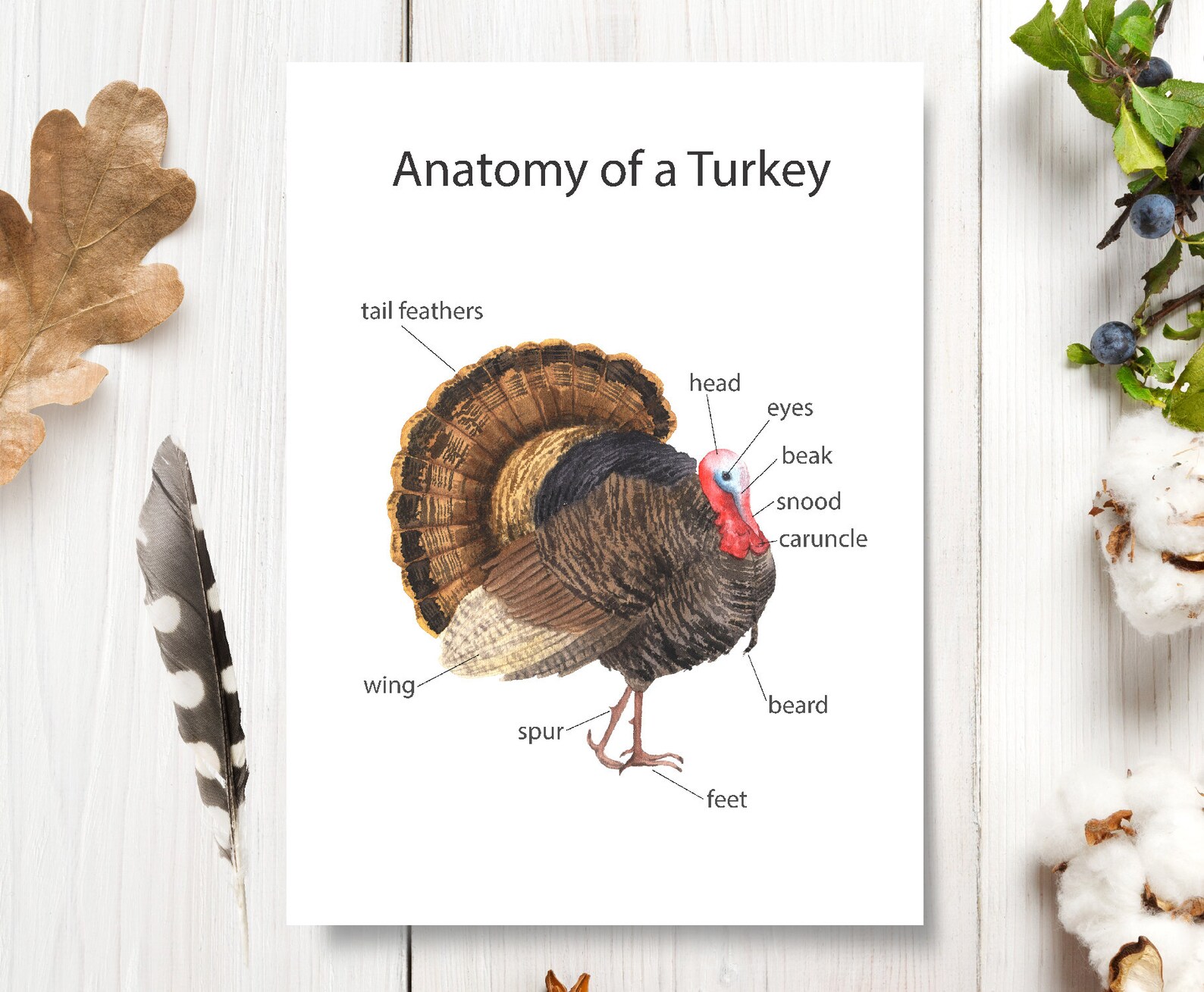
Turkey Anatomy Printable Poster Thanksgiving Wall Art Etsy
Here are two printable sheets for your students to use for labeling a turkey. You can choose whether to have your students cut and glue the labels, or write the labels in the boxes.Bundle and Save $$$:A+ Labeling Throughout The Year: Bundle PackPlease view the mini windows to the right, because the.

Learn the parts of a Turkey
Wingette. Drumette. The last two dark meat selections will come off as one piece. If you wanted to cook whole turkey wings you could do so but I prefer them separated. Legs and thighs will come off together as well and will need to be parted as well unless you want to cook as whole quarters.
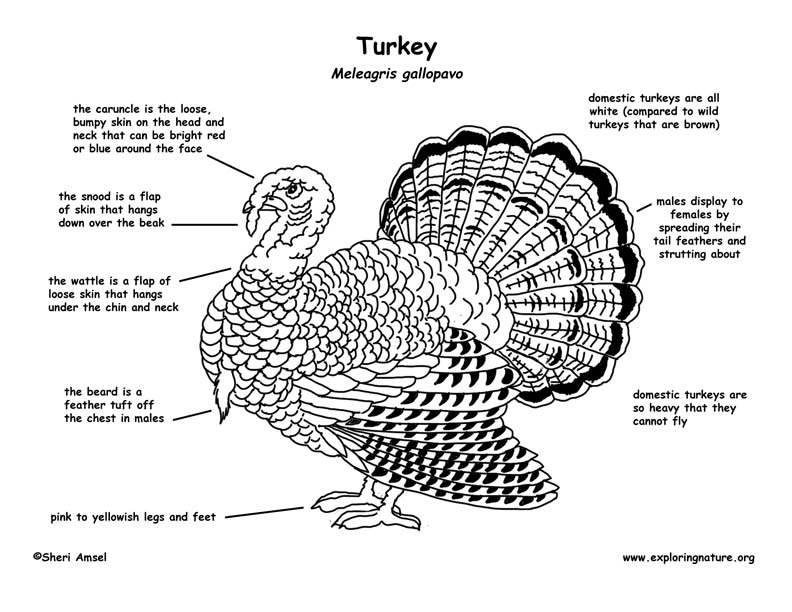
Turkey
Archibald Rutledge once said, "the turkey's eyes are such that he can see a bumblebee turn a somersault on the verge of the horizon." Turkeys can see as a human would while using 8-10x zoom.
The Five of Us Turkey Anatomy Lesson
Hanging down anywhere from an inch to more than 10 inches from a tom's chest, the beard is actually a modified feather, even though it appears to be part of the turkey's skin. The beard is coarse like a horse tail and grows three to five inches a year. A three-year-old bird would possibly have a nine-inch beard, and beards over 11 inches.

What the Teacher Wants! TURKEY downloads and something extra
This Turkeys: An Animal Study is perfect for science in Preschool, Pre-K, Kindergarten, First Grade, and Second Grade classrooms and packed full of inviting science activities. Students will learn about the difference between turkeys and chickens, animals that can and cannot fly, parts of a turkey, and a turkey's life cycle.

FREE Label the Turkey Thanksgiving Worksheet 2 Printable Versions
Parts of a Turkey - Gather books about turkey for children to explore. Print posters and label cards on cardstock and laminate.. Alternatively, print pages on regular printing paper and invite the child to trace or label parts of a turkey and turkey life cycle. You might like to invite the students to compare the life cycle of a turkey.

turkey labeling Homeschool Thanksgiving Pinterest Thanksgiving
Technically, wattles and snoods are types of caruncles, but on turkeys the term usually refers to all the flesh that is not a wattle or a snood. If you look closely at the caruncles around the skull, you'll see a pea-sized orifice behind each eye, which are the turkey's ears. The bulbous hunks of tissue behind the dewlap are called the.
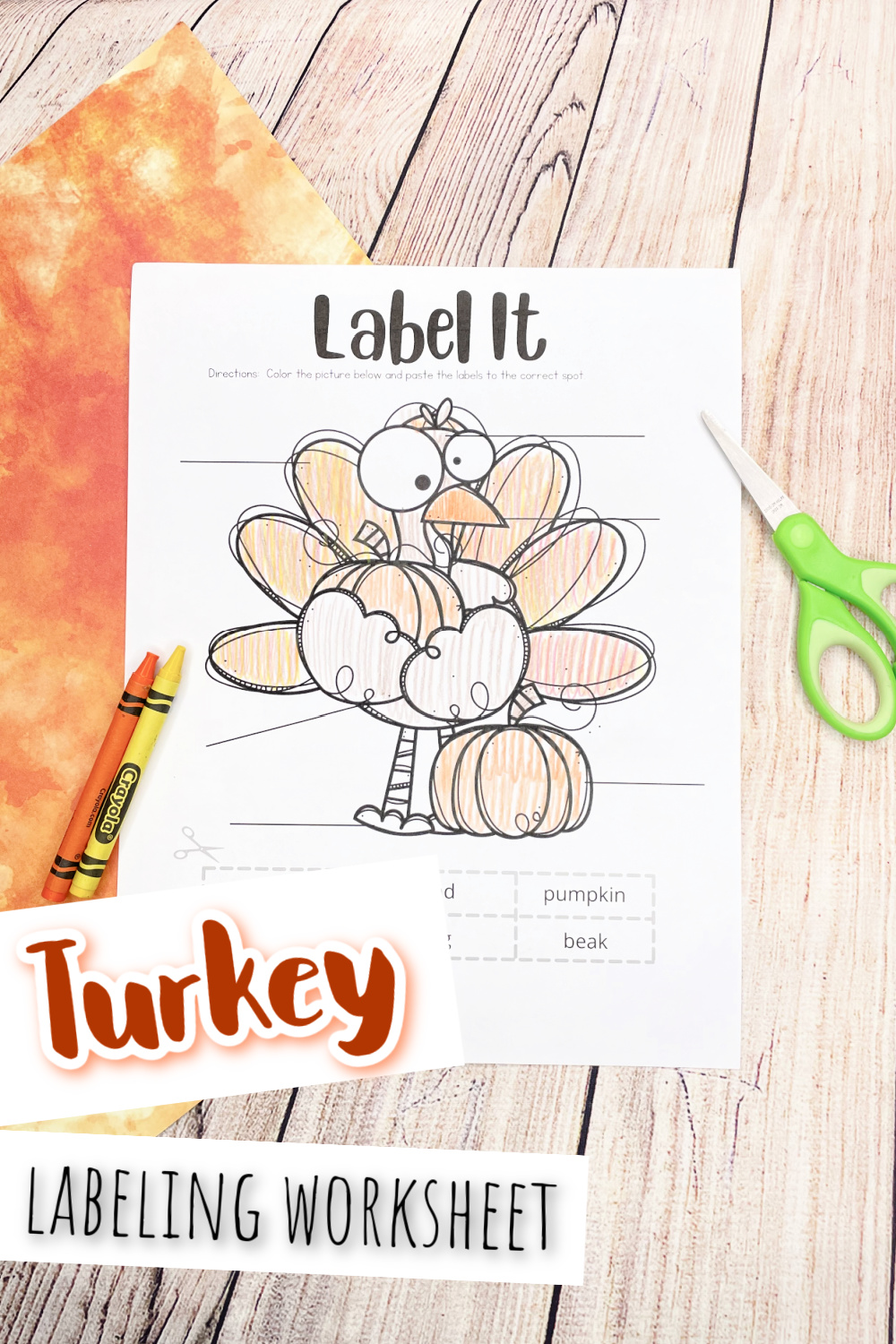
Free Printable Parts of a Turkey Worksheet
Like roosters, toms also have large spurs as part of their normal turkey anatomy. Females can grow spurs, but they tend to be more rounded and less pronounced. (Turkey feet also appear distinctly pterodactyl-like, in my opinion.) Feather Features. When at rest, male and female turkey feathering appears similar.

turkey parts quiz static turkey parts answers interactive nwtf turkey
Turkeys have many of the same basic external parts as chickens —ears, earlobes, eyes, eye rings, beak, wings, tail, thighs, hocks, shanks, spurs, claws, and toes. However, some differences exist in the external anatomies of turkeys and chickens. For example, a turkey's head (shown in Figure 1) differs from a chicken's head in several ways.
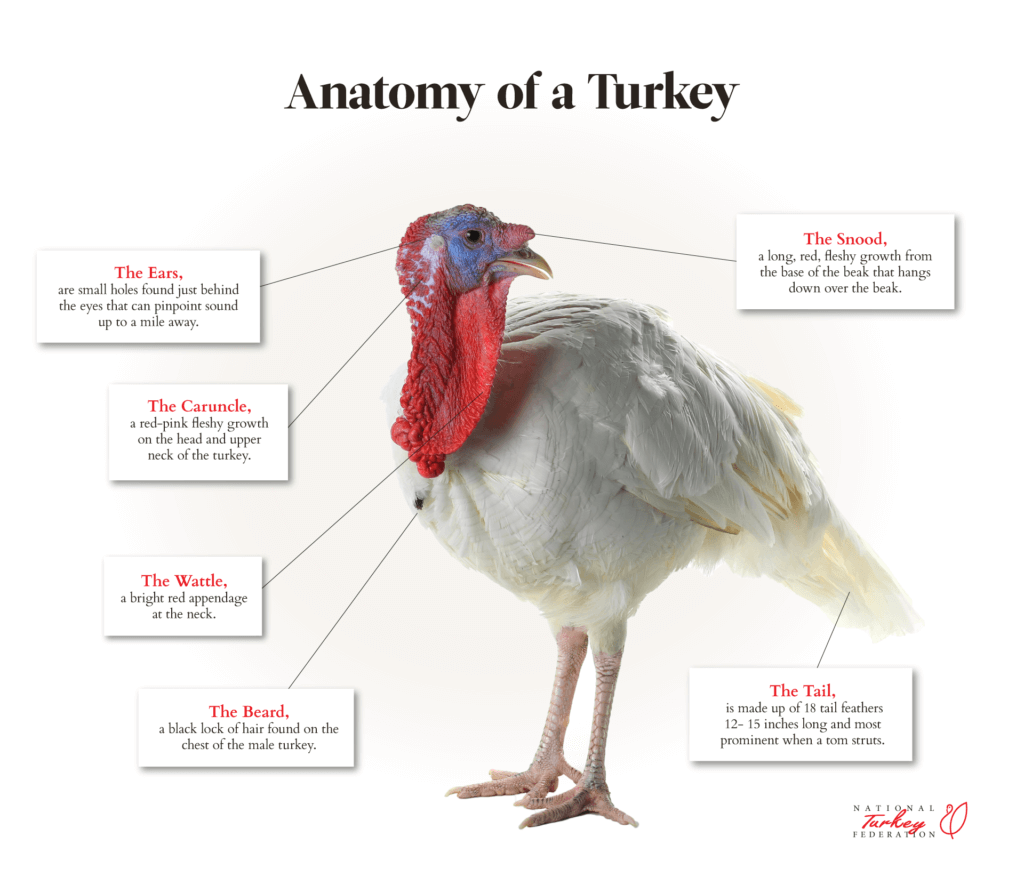
Raising America's Turkeys National Turkey Federation
The drumstick is the outermost part of the leg, below the knee joint. Above that is the thigh, which extends toward the back of the turkey. Step 3: Examine the wings Pull one of the wings away from the body. The drummette is the part of the wing nearest the body. The wing tip is at the very outside of the wing. In between is the flat middle.

Talking Turkey Parts Your Wild Life
Write-In Version: Using the words from the word bank at the bottom of the worksheet, have the kids label each part of the turkey by writing the words in the boxes provided. Just like the "cut and paste" version of the worksheet, you can have your kiddos use this as a coloring page when they have completed labeling the turkey!
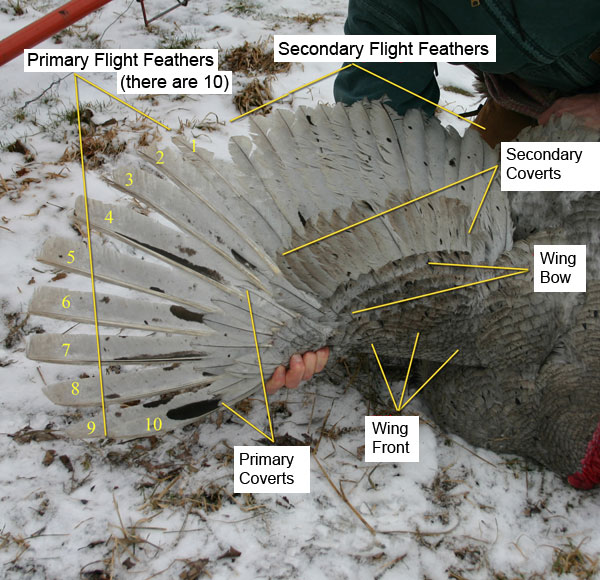
Learn the parts of a Turkey Wing
A wild turkey can easily spot a hunter from a few hundred yards away if not properly concealed. "Turkeys have monocular periscopic vision, which means that their eyes function independently of each other to transmit information to the brain," Chamberlain said. "Because the eyes are on the sides of their heads, turkeys have an almost 360.

Turkey LifeCycle Learning with Play
We look at all the parts of a turkey together!
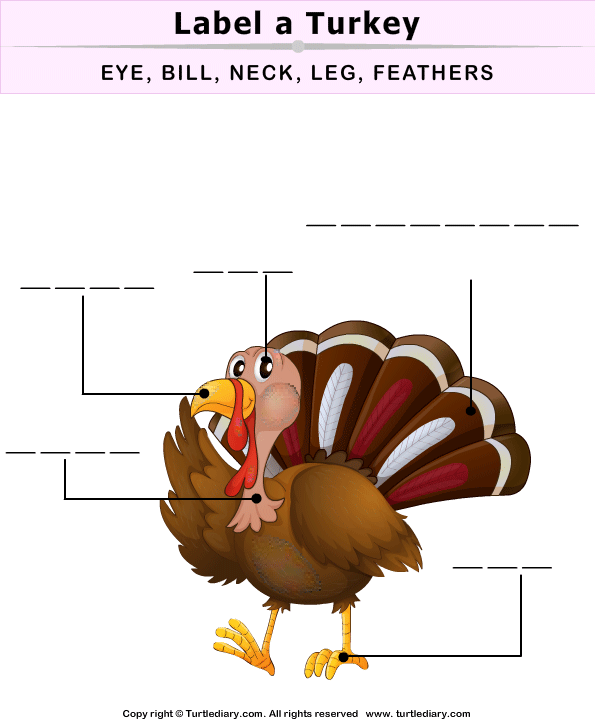
Label Turkey Parts Worksheet Turtle Diary
Learn the parts of a Turkey. Situation: You have decided to participate in a Poultry Judging Contest next week. Your advisor has suggested you study the parts of a turkey. Task: Study the photo below to review the parts of a turkey. After you are finished, go on to the next page to do an exercise designed to help you remember the names.
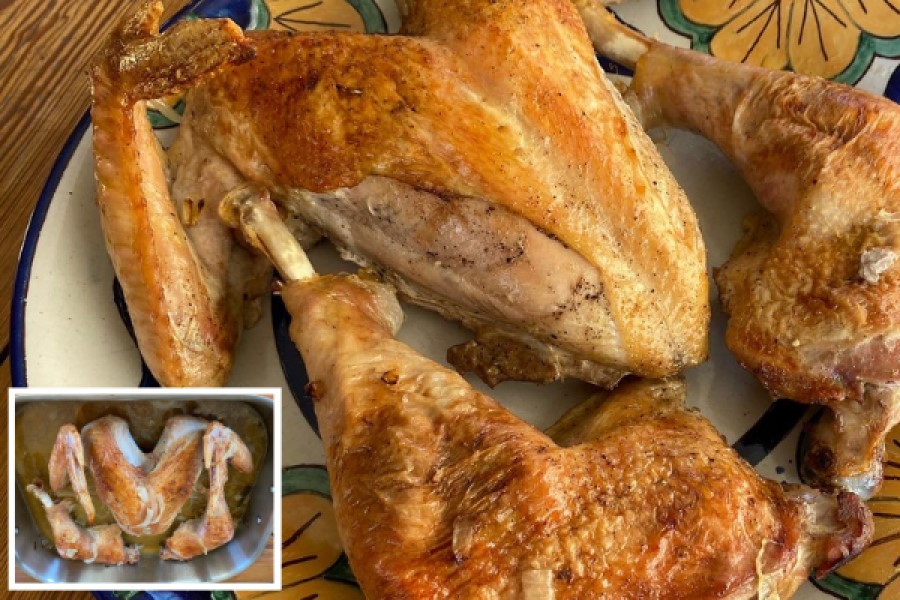
Roasted Turkey in Parts Santa Fe Farmers' Market Institute
Body. The body of a wild turkey is compact and muscular, with a wingspan of up to 4 feet. The feathers on the body of a turkey are iridescent and can range in color from brown and black to green and bronze. The male turkey has a tuft of bristle-like feathers called a beard on its chest, while the female turkey does not.
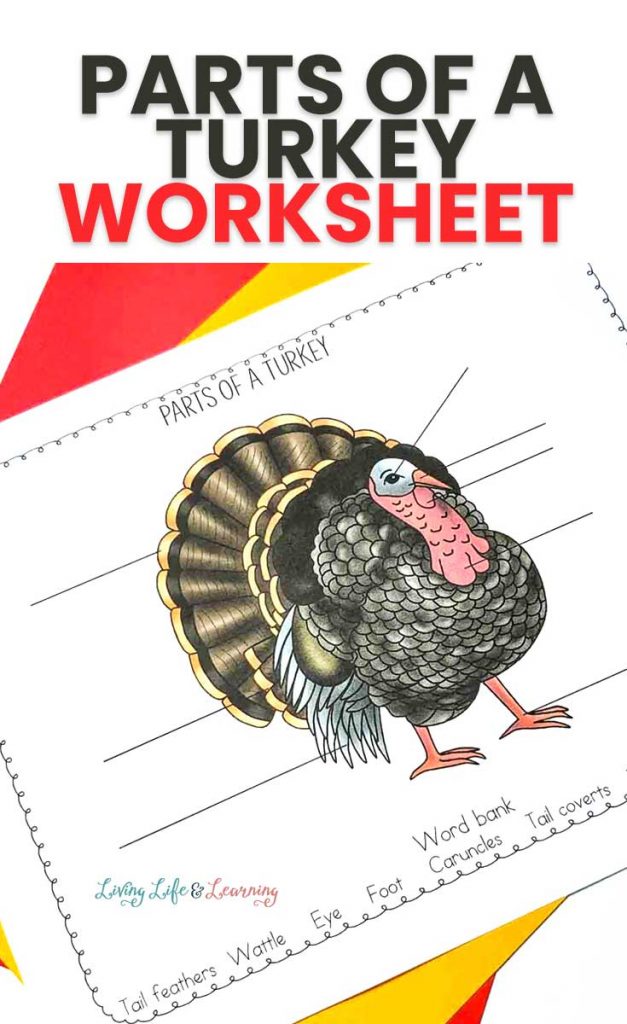
Free Parts of a Turkey Printables Free Homeschool Deals
Note: To help your student identify the parts to be labeled, "textures" were added to the tactile turkey diagram. The beak and feet are solid black (raised), the wattle is dotted, and the tail/wing feathers have zig-zag textures. This makes it slightly easier for students to tactually distinguish these turkey parts.